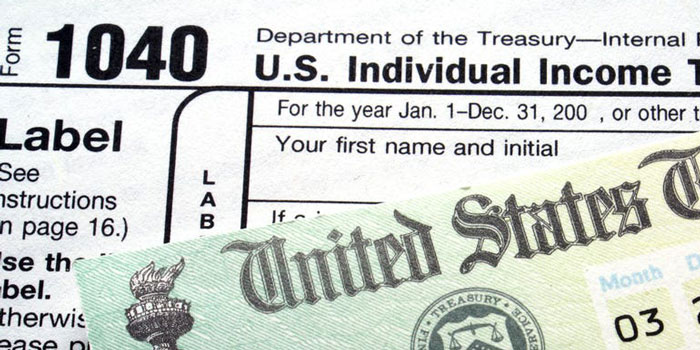To begin with, the Internal Revenue Service (IRS) collects taxes from citizens, companies, and other organizations to pay for a range of government services and programs.
Assessing tax obligations based on revenue, deductions, and credits is a part of this procedure. Additionally, the IRS implements a system of investigations and investigations to guarantee compliance.

It is crucial to remember that the Department of the Treasury governs IRS in the meantime. Due to this association, the IRS has the authority to control and supervise matters of taxes, especially the interpretation and application of tax laws. The IRS is also in charge of giving qualified people their tax refunds.
Additionally, the IRS offers taxpayers helpful assistance through its customer service efforts. These programs seek to inform and advise people and companies on their tax responsibilities and rights.
The IRS also provides various resources, including publications and online tools, to make the process of filing and paying taxes easier. The IRS is also a key player in the fight against tax fraud and identity theft.
The IRS works tirelessly to identify and pursue those who engage in dishonest tax practices through its investigation activities and partnerships with law enforcement authorities. This protects sincere taxpayers and guarantees the integrity of the tax system.
How does the Internal Revenue Service (IRS) work?
The Internal Revenue Service (IRS) follows a structured procedure to guarantee the effective enforcement of tax rules.
Subsequently, the IRS examines these forms, ensuring they are accurate and looking for any potential errors or warning signs. The IRS may choose tax returns for inspection after seeing anomalies or warning signs so that it may look into them further and confirm the information presented.
To verify the accuracy of claimed income and deductions, the IRS carefully reviews the taxpayer's accounting records and supporting paperwork during an audit. The IRS might bring penalties such as fines or criminal charges if the audit exposes mistakes or deliberate tax fraud.
The IRS processes refund requests for taxpayers who have overpaid their taxes, either by mailing a cheque or depositing money immediately into the taxpayer's bank account.
The IRS notifies people when they owe more taxes and requests payment. For taxpayers with financial difficulties, the IRS provides various payment options, including online payments, installment arrangements, and offers in compromise.
The IRS may use collection tactics, including property liens, bank levies, and wage garnishment if a taxpayer refuses to pay the due taxes. The IRS also closely collaborates with tax authorities from other nations to prevent international tax evasion and guarantee tax compliance on a worldwide scale.
What is the main aim of the IRS?
Moving on to the following point, the IRS dedicates itself to effectively and adequately enforcing tax laws, holding individuals accountable for infractions or fraudulent activity. The Internal Revenue Service's (IRS) broad mandate includes several vital goals.
- Firstly, the IRS ensures that all taxpayers in the United States follow their tax responsibilities.
- The Internal Revenue Service (IRS) also wants to help people understand and fulfill their tax obligations by offering high-quality services. Additionally, the IRS promotes voluntary compliance and uses enforcement actions to discourage disobedience to preserve the authenticity of the tax system.
- Additionally, the IRS is essential in delivering taxpayer outreach and education, arming people and companies with the information and tools they need to understand the tax code's complexity.
- To ensure that taxpayers see the IRS as an open and responsible organization, the IRS is working to create confidence and trust in the tax administration process. Additionally, the IRS works to provide equal opportunities by consistently and equitably applying the tax code to all taxpayers.
- The Internal Revenue Service (IRS) actively attempts to stop tax evasion and address the tax gap, representing the difference between taxes taxpayers willingly pay and those owing.
How can IRS be improved?
To improve tax administration and increase taxpayer satisfaction, the Internal Revenue Service (IRS) must make improvements. Implementing measures to address existing challenges and create a more efficient and effective system is crucial. The IRS may solve current issues and ensure a more effective and efficient system by implementing a few steps.
The IRS should first invest in updating its technical foundation. Upgrading systems and software can streamline processes, improve data management, and enhance online services, ensuring streamlined processes, improved data management, and enhanced online services.

The IRS should also prioritize customer service by increasing its instructional and outreach programs. Providing readily available tools and unambiguous direction can aid taxpayers in comprehending their responsibilities and navigating the tax system with ease.
The IRS should also consider making the tax code simpler. Simplifying a process may help both taxpayers and IRS employees understand it better, make fewer mistakes, and save time.
Summing Up
The IRS has worked to increase both efficiency and consumer satisfaction. It has adopted simplified processes and initiatives to cut down on the time and resources needed for tax-related operations. To help people navigate the tax system, this involves creating interactive elements, online courses, and self-help tools.
In addition, the IRS works with foreign tax authorities to stop tax fraud and advance international tax transparency. The IRS seeks to guarantee that taxpayers correctly report their worldwide income and adhere to foreign tax laws through information exchange and collaboration. All taxpayers will benefit from a fair playing field because of this.
The Internal Revenue Service (IRS) oversees and upholds federal tax rules in the United States and is a crucial institution. The IRS is essential to preserving the country's financial stability in terms of tax collection and compliance enforcement.
The IRS works to offer efficient and effective tax administration for the betterment of all taxpayers through its customer service initiatives, anti-fraud activities, policy implementation, and technical improvements.
FAQs:
- Is the IRS a government agency?
A: Yes, the Internal Revenue Service, a department of the American government, is in charge of enforcing and administering federal tax laws.
- When was IRS established?
A: President Abraham Lincoln introduced an income tax in 1862 to help pay for the Civil War, and as a result, the IRS was created. 1872 the tax was eliminated; it was reinstated in 1894; then, in 1895, the U.S. Supreme Court ruled that it was unconstitutional. The 16th Amendment to the United States Constitution reestablished the federal income tax in 1913.
- What is the deadline for filing tax returns with the IRS?
A: Unless it occurs on a weekend or holiday, April 15th is normally the deadline for submitting individual tax returns in the US. However, in some cases, exceptions and extensions may be allowed.



